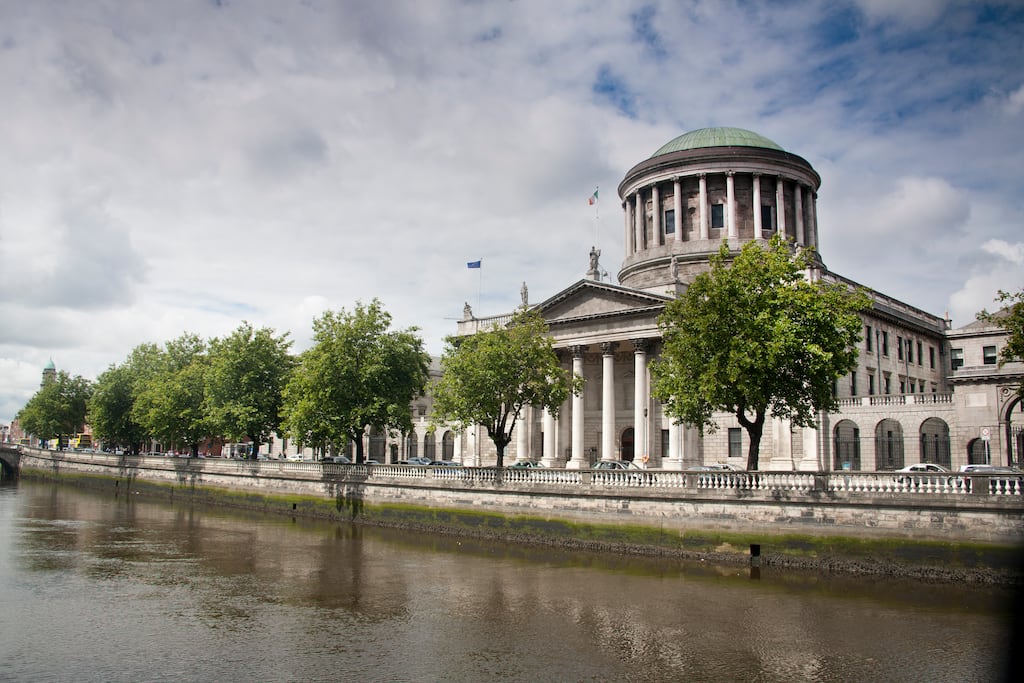High Court actions have been launched against An Bord Pleanála’s decisions to grant planning permission for more than 1,000 residential units in two separate Strategic Housing Developments in Dublin.
The first action is against the board’s decision to grant permission to Homeland Silverpines Ltd for 463 residential units and a childcare facility on a 6.77 acre site at St Joseph’s House near Brewery Road and Leopardstown Road in Dublin 18.
The second action — which is against the Minister for Housing, Ireland and the Attorney General as well as the board — challenges the decision to grant Silvermount Ltd permission to construct 545 build-to-rent apartments and commercial, office, retail and childcare facilities at Concorde Industrial Estate, Naas Road, Walkinstown, Dublin 12.
Both judicial review actions have been brought by environmentalist John Conway from Dundalk in Co Louth.
READ MORE
Represented by Stephen Dodd SC, Mr Conway seeks various orders and declarations, including orders quashing the decisions to grant planning permission.
The developers of both projects are notice parties to the respective proceedings.
In his action against the proposed Leopardstown development Mr Conway claims the decision is flawed and should be set aside on the basis that it breaches domestic and EU laws, including the requirement to give adequate reasons for granting permission.
It is claimed that the decision to grant permission was in material contravention of the local area development plan regarding car parking requirements, and the protection and preservation of local trees and woodlands.
The board also acted outside of its power by seeking additional information by way of an oral hearing to address concerns about the proposed development’s impact on nearby residential amenities, he claims.
The decision to grant permission also failed to consider factors including the development plans prescribed minimum standards for size, internal storage, and private open space for apartments, it is claimed.
In relation to the Walkinstown development Mr Conway says that the decision to give that project the go-ahead is also flawed and invalid.
He claims that when arriving at its decision to grant permission the board relied on certain guidelines relating to the Urban Development, Building Heights and apartments made by the Minister for Housing in 2018 and 2020.
Those guidelines, it is claimed, are invalid.
This is because certain sections of the 2000 Planning and Development Act which allows the Minister to authorise such guidelines are unconstitutional, it is claimed.
It is argued that the sections purport to give the Minister a vague and disproportionate power to make binding policies that restrict powers designated to elected local authorities.
Both actions were briefly mentioned before Mr Justice Conor Dignam during Tuesday’s vacation sitting of the High Court.
The judge adjourned both applications where permission to bring their actions is being sought, to a date later this month.
Both actions will be considered by judges who specifically deal with challenges against the board’s decision to grant permission for large scale or Strategic Housing Developments.
A second High Court challenge has been brought against the board’s decision to grant planning permission for the proposed development at St Joseph’s House in Leopardstown.
The Leopardstown Action Group, which represents residents living close to the proposed development, has commenced judicial review proceedings against An Bord Pleanála and Ireland and the Attorney General, aimed at overturning the planning permission.
The developer is also a notice party to those proceedings. The residents’ group also claim the decision to grant planning permission was flawed and should be set aside.
This case was also mentioned before Mr Justice Conor Dignam during Tuesday’s sitting of the High Court and was adjourned to a date later this month.














